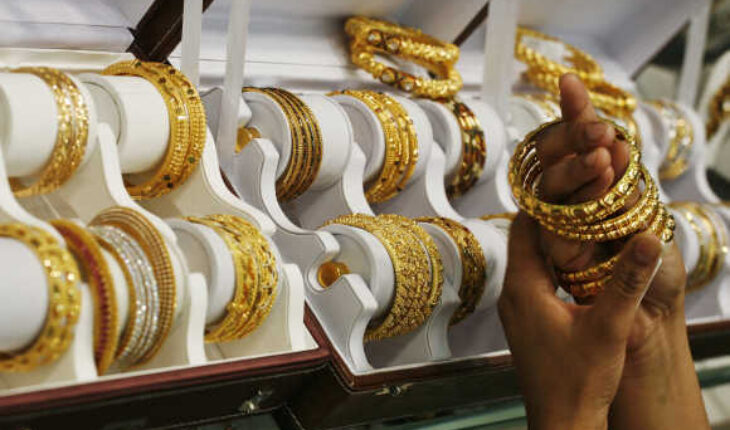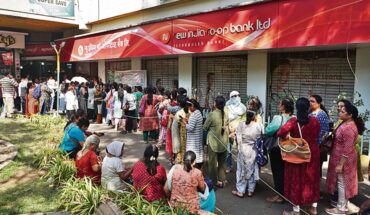
In the 75 years of independence, the price of gold has increased manifold. At the time of the country’s independence, the price of 10 grams of gold was Rs.88.62 and in the year 1964, its price came down to Rs.63.25. Further, it increased to Rs.10,000/-on 5th May 2006. It again increased to Rs.50,000/- on 22 July 2020 & it went to a level of Rs 62,000/- with Goods and Services Tax (GST) on 20 March 2023 & again, it came down to Rs.61625/-on 31st March 2023.
Here, question arises, why does the price of gold increase ? Why its demand suddenly starts increasing? Usually, when the pace of the economy slows down, the traditional means of investment start yielding less and due to the instability of the market, there are chances of sinking of the investment. On the contrary, gold is not affected by the volatility of the market or the sluggishness of the economy. Because of this, when the economy weakens, common people’s trust in gold increases and they start investing in gold, due to which its price increases.
At the time of independence, India’s gross domestic product (GDP) was Rs.2.7 lakh crore, which increased to Rs.135.13 lakh crore in the financial year 2020-21. The first five-year plan started in the year 1951, but it was not very successful in strengthening the economy. The subsequent five-year plans also could not yield the expected results. However, from the year 1961, growth in the Indian economy started becoming visible. From the year 1950 to the year 1979, the country’s GDP was growing at an average rate of 3.5 percent, which was called “Hindu growth rate” in the Indian economy, whereas from the year 1950 to the year 2020, India’s GDP growth rate was at an average rate of 6.15 percent. In the first quarter of the year 2010, the GDP rate reached the highest level of 11.40 percent, whereas in the fourth quarter of the year 1979, it recorded the lowest growth of 5.20 percent. In the year 1960, India’s per capita income was US $ 81.3, which increased to US $ 7332.9 in April 2021.
The annual growth rate of per capita income in the country was 3.1 percent on an average during the financial year 1980-81 to the financial year 1991-92, which increased to an average level of 3.7 percent during the financial year 1992-93 to the financial year 2002-03, which again doubled during the financial year 2003-2004 to the level of 7.2 per year on an average during the financial year 2007-2008.
From the year 1991, the Government of India started doing economic reforms, which is still going on today. In the year 1991, several measures were taken to bring positive changes in the areas of foreign trade, tax reform, foreign investment etc., which helped the Indian economy to move forward. It is noteworthy that even during the Corona period and the global recession, GDP is estimated to grow at the rate of 7 percent in the financial year 2022-23. In this way, due to the ups and downs in the economy, the price of gold is also fluctuating.
At present, people have lost faith in other means of investment due to rising inflation, loan interest rates remaining high, global geopolitical crisis, fear of global recession, bankruptcy of banks in USA and Europe etc. And for this reason, a decline has also been registered in the stock market. People are feeling that by investing in gold they can keep their money safe as well as they can get good returns.
The thinking of the common people is also correct to a great extent, because in the last 4 years gold has given 100 percent return to the investors, while bitcoin has given 600 percent, silver 76 percent and copper 37 percent. At the same time, a 50 percent rise has been seen in the stock index during this period.
In the changing perspective, the price of gold may increase even more in the coming months, because the ongoing banking crisis in USA and Europe is yet to be resolved. Central banks of some countries have bought more than 1136 tonnes of gold in the calendar year 2022, which is the highest in any calendar year and they may buy more gold in the coming months to widen the gamut of their deposit base.
The dollar index is seeing a decline again, due to which the demand for gold is expected to remain high. Due to the rise in the price of crude oil, the ongoing war between Russia and Ukraine, the side effects of the Corona pandemic, etc., the inflation is still on higher side and to controlling it, the central banks of many countries are constantly taking strong policy measures.
The Federal Reserve Bank of USA has taken an aggressive stand in the matter from the beginning. It again raised interest rates by 0.25 percent on March 22, 2023. Now, interest rate increased from 4.75 percent to 5.00 percent, the highest level since 2007. It is expected that the Reserve Bank of India can also increase the repo rate by 0.25 percent in the first week of April. Due to this, the loan rate of banks will increase further, and the growth rate will be adversely affected, due to which the demand for gold will increase further. Apart from this, looking at the history of 50 years of fluctuations in the price of gold shows that the major fluctuations in the price of gold continue for 4 to 5 years.
In India, people’s craze for gold has been there since time immemorial, but there is no expected production of gold here. That is why India has to depend on other countries to meet its domestic requirement. Today India imports 45.8 per cent gold from Switzerland, 12.7 per cent from United Arab Emirates (UAE), 7.3 per cent from South Africa and Guinea and 5 per cent from Peru to meet the domestic requirement. India comes second in the world after China in terms of buying gold.
India’s trade deficit is increasing due to high import of gold. Therefore, the import duty on gold was increased from 7.5 percent to 12.5 percent to reduce gold imports, as there was a 33 percent increase in gold imports in the country in the financial year 2021-22. However, 833.07 kg of smuggled gold was also seized during this period. The value of gold imports was Rs 3744 crores, while the value of smuggled gold was Rs.405 crore. After increasing the import duty, gold smuggling in India increased by 47 percent in the year 2022 with 3502 kg of gold seized, which shows that it is impossible to stop Indians from buying gold. Therefore, the price of gold is expected to remain bright in the coming months as well.
Satish Singh, Mumbai Based Senior Columnist, views are personal






